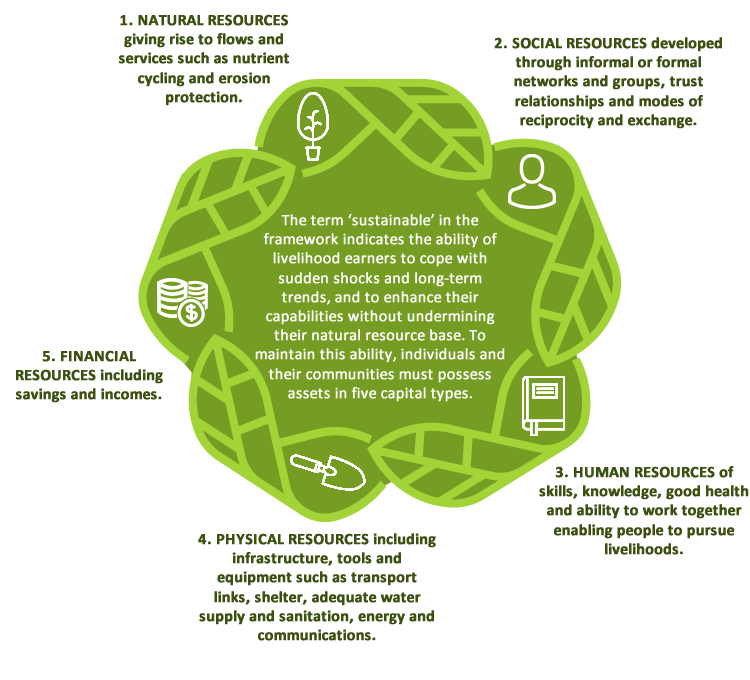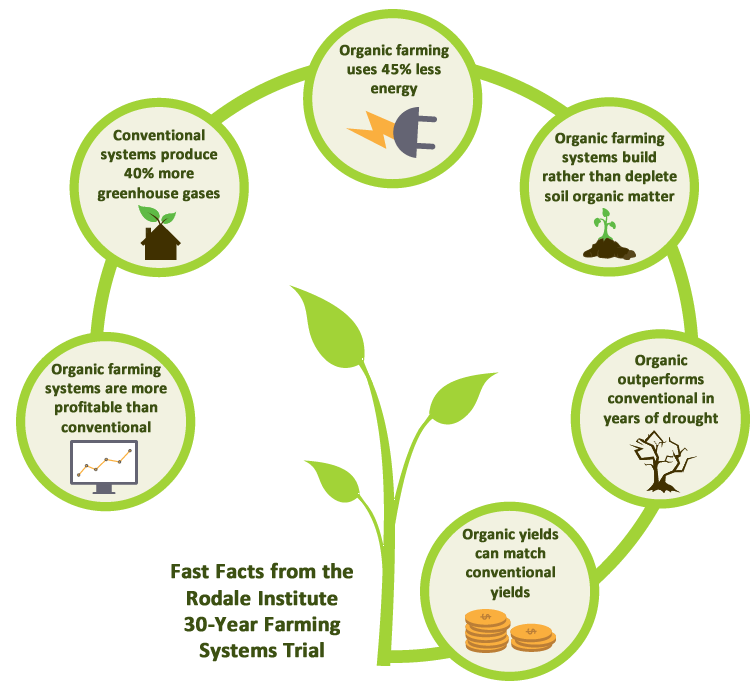“Organic agriculture has the potential to secure a global food supply, just as conventional agriculture is today, but with reduced environmental impact.”
The Food and Agriculture Organization of the United Nations
Our current global food system is ineffective and, at the same time, dangerous to global health and the environment. We have maximized productivity, without taking into account the tremendous global consequences, in order to feed the world’s rising population. And yet, global food security remains a considerable challenge. During this time of exponential population growth, environmental degradation and slowing yields in agriculture, sustainable farming holds a significant and potentially life-saving solution.
The comprehensive shift towards organic and agro-ecological practices has the opportunity to not only increase global food security, but also eradicate hunger once and for all. This is certainly an unconventional and forward-thinking view. For decades, conventional agriculture has relied on synthetic substances to protect crops and safeguard yields. These methods famously saved over one billion people from starvation during the first Green Revolution of the 1960s and many people believe that billions would starve if we moved away from conventional agriculture. Now that these synthetic-chemical-intensive practices are showing signs of severe impact and weakness, many academic and agricultural institutions are exploring the viability of a large-scale shift to organics, with promising results.
The Rodale Institute 30-Year Farming Systems Trial is America’s longest running, side by-side comparison of organic and chemical agriculture. Research began in 1981 to examine what happens during the transition from synthetic, conventional agriculture to organic systems that utilize safer, natural, crop care alternatives. After an initial decline in yields during the first three years of transition, the organic system soon rebounded to match, and in some cases surpass, the conventional system. These cases were during years of drought, where organic corn yields were 31% higher than conventional. This is remarkable when you consider that genetically engineered “drought-resistant” varieties saw increases of up to 13.3% over conventional methods. Though they only increased yields by 1/3, these organic systems were three times more profitable than conventional systems, offering an average net return of $559 per acre per year versus $190 for the conventional system. After the first decade of research, the study became focused on the long-term potential growth and impact of both systems.
.
Many institutions around the world are coming to similar conclusions. The Research Institute for Organic Agriculture in Switzerland, through peer-reviewed research of over 200 farms across North America and Europe, concluded that organic yields were 80% of those achieved by conventional plots over a 21-year period. Other studies show an even narrower gap. Reviewing 154 growing seasons’ worth of data, the University of California at Davis found that organic wheat yields produced 97% of conventional yields while organic corn and soybean yields were 94%. Organic tomatoes showed no yield difference.
The World Bank’s Food Policy Research Institute assessed the impact of a large-scale conversion to organic farming and found that yields would increase across Africa, Asia and Latin America, where most of the world’s hungry live. This claim is backed up by many international development projects around the world.One study from the Asian Development Bank, analyzing data from 9 million farms across 30 million hectares in developing regions of the world, found that yields increase by an average of 93% when using agroecological practices. A seven-year study from Maikaal District in India involving 1,000 farmers cultivating 3,200 hectares of land found that yields for cotton, wheat, chilli and soy were as much as 20% higher on organic farms than their conventional counterparts.
As we face the pressures of exponential population growth, environmental degradation and slowing yields, we will require systems that can adapt and even mitigate these challenges while producing healthy and nourishing food. The fact that a comprehensive shift towards organic and agro-ecological practices has a profound opportunity to increase global food security in some of the most affected regions of the world is truly significant. By using neem-based, natural biopesticides and fertilizers, these organic systems can flourish and thrive globally without the damaging, environmental and health impacts that go hand-in-hand with synthetic farming. This allows us to combine traditional wisdom with ecological innovations so that we can create a truly sustainable food system that prioritizes yields, economic viability, energy usage, environmental impact and human health.

